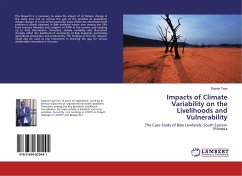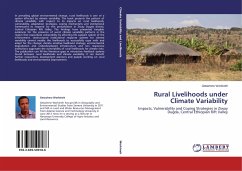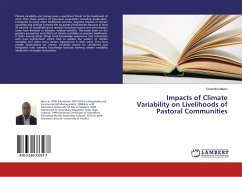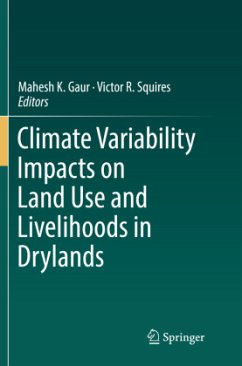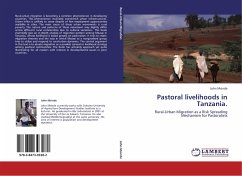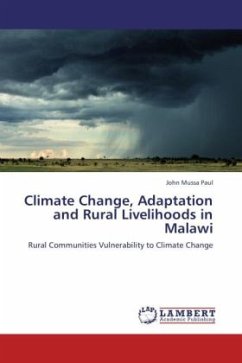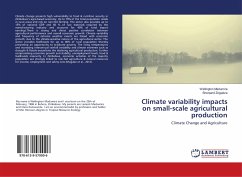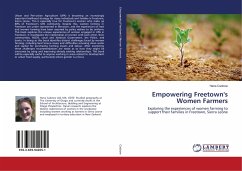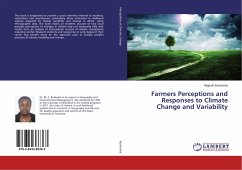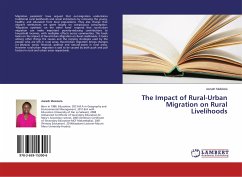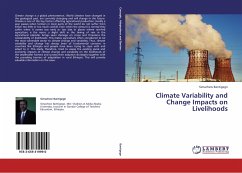
Climate Variability and Change Impacts on Livelihoods
Versandkostenfrei!
Versandfertig in 6-10 Tagen
45,99 €
inkl. MwSt.

PAYBACK Punkte
23 °P sammeln!
Climate change is a global phenomenon. World climates have changed in the geological past, are currently changing and will change in the future. Climate is one of the key factors affecting agricultural production. Hardly a year passes when farmers in most parts of the world do not suffer from either too little or too much rainfall. Even when the amount is normal they suffer when it comes too early or too late. In places where rain-fed agriculture is the norm, a slight shift in the timing of rain in the agricultural calendar brings sever damage on crops and threatens the sustainability of livel...
Climate change is a global phenomenon. World climates have changed in the geological past, are currently changing and will change in the future. Climate is one of the key factors affecting agricultural production. Hardly a year passes when farmers in most parts of the world do not suffer from either too little or too much rainfall. Even when the amount is normal they suffer when it comes too early or too late. In places where rain-fed agriculture is the norm, a slight shift in the timing of rain in the agricultural calendar brings sever damage on crops and threatens the sustainability of livelihoods. This makes agriculture often considered to be the most vulnerable sector to climate change and variability. Thus, climate variability and change has always been of fundamental concerns in countries like Ethiopia and people have been trying to cope with and adapt to it. This study, therefore, tried to assess the existing social and economic impacts of climate change and variability onthe livelihoods of the smallholder farmers and surveys their adaption strategies together with the prevailing barriers of adaptation in rural Ethiopia. This will provide valuable information on the issue.



